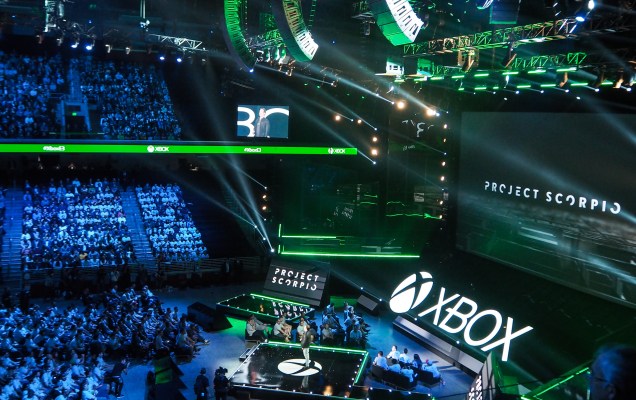As Microsoft marches toward a new deadline for its planned acquisition of Activision, the company stumbled into an unexpected setback of its own making.
This week, a trove of documents surfaced through Microsoft’s battle with the FTC, which surfaced corporate insights and trade secrets about its Xbox business that the company obviously intended to keep under wraps.
The files were part of a deposition added to an online portal hosted by the U.S. District Court for the Northern District of California and have since been pulled offline. While the documents were originally uploaded on September 14, a user on gaming forum ResetEra pointed out the unredacted emails, reports and presentations were attached to downloadable PDFs in the batch of uploads. The files, which Microsoft itself apparently accidentally leaked, were pulled offline earlier this week.
The leak offered an unexpected snapshot of Microsoft’s Xbox plans, including the timeline for a new iteration of the Xbox Series X. Head of Xbox Phil Spencer tried to spin the leaks on X, formerly Twitter, characterizing the leaked information as stale. But there’s still plenty to be gleaned in spite of Spencer’s comments.
In one email dated in 2020, Spencer reveals Microsoft’s ambitions to buy Nintendo — the third wheel in the PlayStation/Xbox ecosystem. “Nintendo is THE prime asset for us in Gaming,” Spencer wrote, adding that Microsoft would be the most well-positioned potential buyer in the U.S.
“At some point, getting Nintendo would be a career moment,” Spencer said. “It’s just taking a long time for Nintendo to see that their future exists off of their own hardware.” The Microsoft executive also named Valve, maker of the online game marketplace Steam, as another potential acquisition target to have in mind if the opportunity ever arose.
If Microsoft’s acquisition of Activision has attracted this much scrutiny, it’s difficult to imagine how the company would fare against antitrust regulators if it ever realized that particular pipe dream.
As far as the Xbox roadmap goes, the leaks revealed that Microsoft has an updated version of the Xbox Series X on the way next year — or at least it planned to around the time the leaked files were authored. That refresh, code named Brooklin, would give the console a cylindrical design while removing the disc drive. A new version of the Xbox controller could also be on the way next year, with a lift-to-wake feature and an accelerometer.
The leaks paint a picture a bit further down the roadmap as well. The plans are likely still in a nascent state, but Microsoft’s next-generation Xbox console could be a “hybrid game platform” that would leverage cloud computing to offer new, presumably more advanced gaming experiences. “Optimized for real time game play and creators, we will enable new levels of performance beyond the capabilities of the client hardware alone,” the company wrote in leaked documents.
Dedicated console-wars spectators will find plenty of other bits about Microsoft’s Xbox business floating in the leaks. One last gem: Microsoft apparently had the wildly popular and well-reviewed Baldur’s Gate 3 on its radar, but dismissed the game as a “second-run Stadia PC RPG” that wasn’t a priority for Xbox Game Pass. The irony, of course, is that Baldur’s Gate 3 upstaged Xbox exclusive Starfield, which prior to launch was regarded as the guaranteed hit poised to overshadow the other RPG.
Microsoft’s big leak — potentially anticompetitive murmurs and all — isn’t likely to get in the way of its plans to buy Activision, in the U.S. at least. The company prevailed over the FTC back in July when a federal judge declined to grant the regulator an injunction that would block the company’s proposed merger. That win set the scene for the tech giant to proceed with the deal, which would bring Call of Duty and World of Warcraft developer under its wing for $69 billion.
While the merger was originally set to close on July 18 of this year, uncertainty over the merger resulted in Microsoft and Activision pushing the deadline to October 18 in order to tie up “remaining regulatory concerns.” The deal has faced pushback from U.S. regulators and the U.K.’s Competition and Markets Authority alike.
